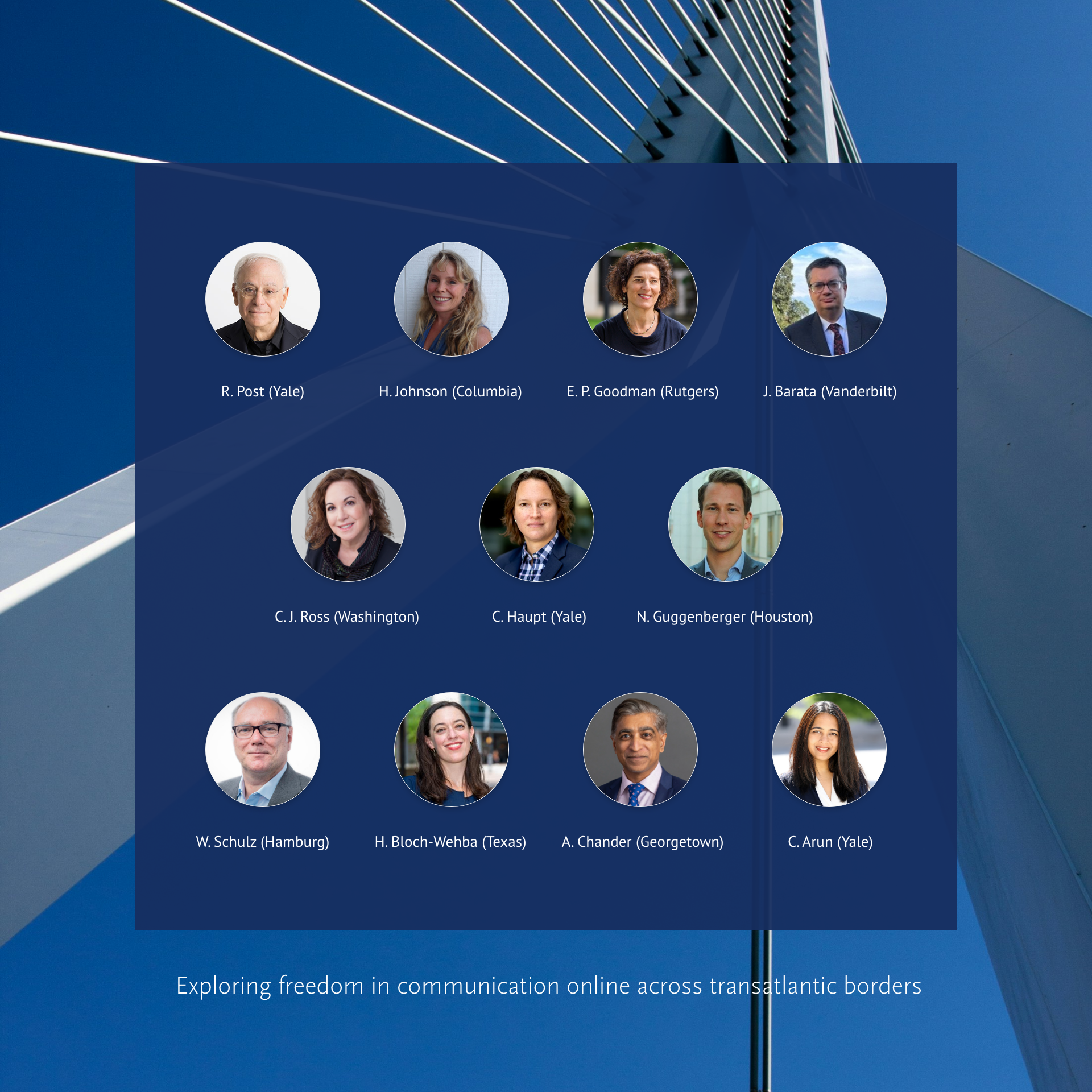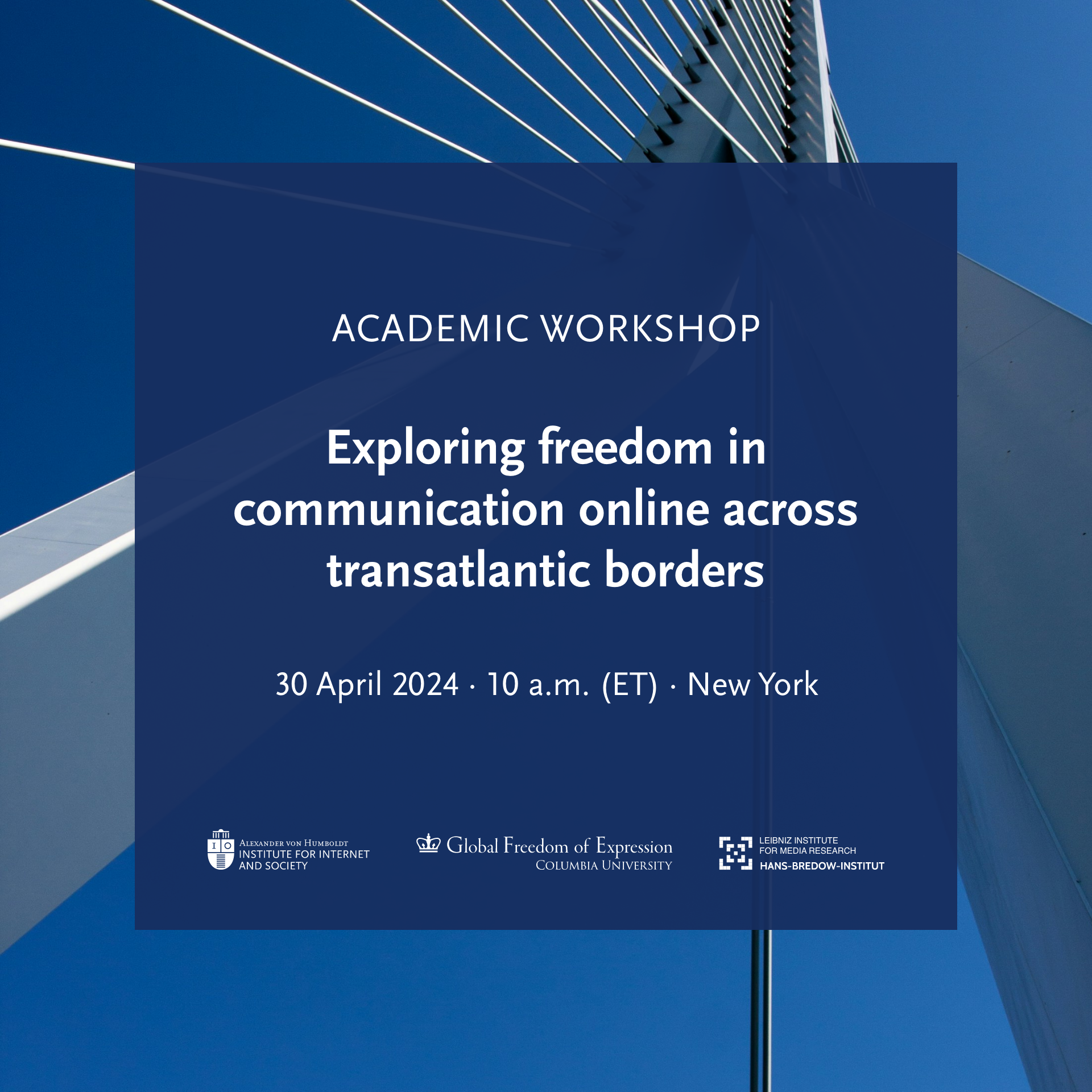30 April
Academic Roundtable: Examining Freedom of Online Communication Across Transatlantic Borders
Academic Roundtable
“Examining Freedom of Online Communication Across Transatlantic Borders”
The Alexander von Humboldt Institute for Internet and Society (HIIG), the Leibniz Institute for Media Research | Hans-Bredow-Institut (HBI), Columbia Global Freedom of Expression, and the UNESCO Chair on Freedom of Communication and Information will co-host an academic workshop in New York. The U.S. and European experts will examine the current state of freedom of expression on digital platforms on both sides of the Atlantic. The event will be held in English.
The landscape of online communication is poised for transformation in 2024. In the E.U., the groundbreaking Digital Services Act (DSA) redefines the role of platform operators, viewing them as a hybrid of state and private actors in content moderation. Meanwhile, a U.S. Supreme Court’s impending ruling on platform operators’ role “could fundamentally alter the nature of speech on the internet”, as the New York Times puts it.
In the midst of The Year of Science 2024 in Germany, there couldn’t be a more opportune moment to delve into the diverse interpretations of freedom concerning communication rights and free speech across Atlantic borders. This academic workshop aims to explore the realm of untapped opportunities for mutual learning. The practical implications are enormous and waiting to be discovered.
Conceived in the U.S., major communication platforms wield significant influence shaped by their interpretation of the First Amendment, thus exporting their understanding of freedom worldwide. Similarly, the expansive E.U. regulation, known as the “Brussels Effect”, extends its reach extraterritorially, disseminating freedom-oriented principles on a comparable scale.
 Contrasts emerge in European countries where constitutional courts recognize the potential, and sometimes necessity, for a regulatory framework — especially in broadcasting — to actualize and safeguard freedom, diverging from the stance of the U.S. Supreme Court, which does not yet offer such a regulatory framework.
Contrasts emerge in European countries where constitutional courts recognize the potential, and sometimes necessity, for a regulatory framework — especially in broadcasting — to actualize and safeguard freedom, diverging from the stance of the U.S. Supreme Court, which does not yet offer such a regulatory framework.
Amidst the ongoing constitutionalization of communication orders, fueled by the implementation of the Digital Services Act, this juncture presents an exceptional opportunity to juxtapose current understandings of freedom, explore learning potentials, and foster intensified transatlantic cooperation — particularly in the realm of AI regulation, where similar questions abound.
This event is part of the DSA Research Network project.
Participation in this event is by invitation only. If you have any questions or comments, please reach out to Christian Ollig (c.ollig@leibniz-hbi.de).


